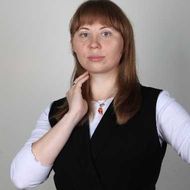Virtual Mozart, Venture Capital Bot, and Educational Video Generation: How AI is Used at HSE University

In mid-November, HSE University hosted a meetup where faculty, researchers, and administrators presented their projects and shared experiences with using AI technologies in education and research. The meeting was part of the continuing professional development programme 'Artificial Intelligence in Education and Research.'
The 'Artificial Intelligence in Education and Research' project supports the initiatives of university staff aiming to leverage advanced technologies to enhance the quality of education and scientific research. The project is carried out within the framework of the Priority 2030 Strategic Academic Leadership Programme.
Redesigning a Venture Capital Course Using AI Elements
Alexander Semenov, Associate Professor at the School of Finance, Faculty of Economics Sciences, shared his experience using artificial intelligence to redesign a course in Venture Capital. One of the primary goals of using AI was to enhance students' understanding of the financial investment market and innovative business practices.

Alexander Semenov
For this purpose, a virtual assistant was developed based on the psychologist chatbot Anna that interacts with students, helping them answer challenging questions and become more psychologically prepared to engage with investors. The use of this virtual assistant has enhanced the quality of student training and introduced new tools for discussing the psychological aspects of entrepreneurship.
AI Simulacra for a Figital Art Course
Evgeniya Evpak, Research Assistant at the HSE ISSEK Laboratory for Economics of Innovation and visiting lecturer at the HSE Art and Design School, presented a project centred on integrating AI simulacra into a course on figital art.

Evgeniya Evpak
The project’s main idea was to create virtual avatars of historical figures, such as Plato, Jean Baudrillard, and Wolfgang Amadeus Mozart, to facilitate educational dialogues with students. These avatars were created using the Hedra and GigaChat neural networks, enabling the integration of gamification elements into the educational process and the creation of an interactive environment for studying figital art and its theoretical foundations. This approach will not only save time in creating educational video materials but also make learning more engaging for students.
AI Tools for Teaching Foreign Languages
Natalia Ryapina, Senior Lecturer at the School of Foreign Languages, HSE Campus in Perm, shared her experience using AI to teach foreign languages.

Natalia Ryapina
The main focus was on using multimodal AI tools, such as Gamma and EdrawMind, which help adapt educational materials and contribute to their comprehension by students. Generating content in various formats (video, audio, text) using artificial intelligence caters to students with different learning styles, increasing their engagement in the educational process and helping them immerse themselves more deeply in the material.
Integration of AI in Educational Activities
Ksenia Fimina, Senior Lecturer at the HSE School of Applied Mathematics, demonstrated how artificial intelligence can optimise the creation of educational materials.

Ksenia Fimina
In her work, she uses AI tools like Narakeet and Invideo AI, which reduce the time required to create presentation-quality videos by more than tenfold. AI tools offer teachers a wide range of ready-made templates and ideas for visually presenting lecture material, helping make the educational process more engaging and accessible for students. Ksenia Fimina also uses neural network technologies in developing a digital assistant for medical researchers as part of the Smart Medicine project.
Using AI to Examine the Narrative Structure of a Text
Marharyta Fabrykant, Senior Research Fellow at the Expert Institute's Laboratory for Comparative Studies in Mass Consciousness, presented the results of a study on using AI tools to analyse the emotional tone of a text and examine its narrative structure.

Marharyta Fabrykant
The project employed emotional dynamics analysis using the NLTK library to study the ancient epic of Gilgamesh. The study revealed patterns in the emotional structure of the text, confirming hypotheses about the rise and fall of emotional intensity at key moments of the narrative. Marharyta Fabrykant's project demonstrates the potential of using AI technologies for objective analysis of complex texts, which is highly significant for conducting humanities research.
The ‘Artificial Intelligence in Education and Research’ is a continuing professional development programme implemented by the HSE Faculty of Computer Sciences' Continuing Education Centre and the HSE Centre for Staff Continuing Professional Development.
See also:
Scientists Develop Effective Microlasers as Small as a Speck of Dust
Researchers at HSE University–St Petersburg have discovered a way to create effective microlasers with diameters as small as 5 to 8 micrometres. They operate at room temperature, require no cooling, and can be integrated into microchips. The scientists relied on the whispering gallery effect to trap light and used buffer layers to reduce energy leakage and stress. This approach holds promise for integrating lasers into microchips, sensors, and quantum technologies. The study has been published in Technical Physics Letters.
HSE University–St Petersburg and Universiti Teknologi Malaysia Release First Book of Mirror Laboratory
Malaysia hosted the AHIBS 'Weaving Horizons for Sustainable Impact' international conference, which featured the presentation of the first Russian–Malaysian book of research articles.
HSE University to Host BRICS International School: New Generation
Registration for the BRICS International School: New Generation, one of the leading international educational projects aimed at prospective leaders interested in the agenda of global development and cooperation within the framework of BRICS, has opened.
HSE University Strengthens Ties with Peking University
On July 21, 2025, representatives from Peking University led by Zhang Jin, Vice President of Peking University and Chancellor of Shenzhen Graduate School, paid a visit to HSE University. The delegation included forty students, teachers, and administrators. During their visit, leaders from both universities discussed potential areas for future collaboration, and representatives from three HSE University departments held meetings with Chinese students.
HSE University Brings Together Researchers at International AI Summer Institute in Shanghai
In early July 2025, the International Summer Institute on Artificial Intelligence in Education took place in Shanghai. It was organised by the HSE Institute of Education in cooperation with East China Normal University (ECNU). More than 50 early-career researchers and keynote speakers from nine countries—ranging from Russia and China to Canada and Singapore—gathered to share the latest findings from their work and to forge new international partnerships.
'We Are Now Nearing Practical Application of a Stimulus-Free Brain-Mapping System'
Neural interfaces developed by scientists at HSE University in collaboration with clinicians make it possible to communicate with the brain and decode its signals. The use of such interfaces opens up opportunities to stimulate brain activity, restore and normalise muscle control in patients who have suffered a stroke, heart attack, or other neurological disorders, and support the rehabilitation of individuals with traumatic brain injuries or limb loss. Alexey Ossadtchi, Director of the Centre for Bioelectric Interfaces at the HSE Institute for Cognitive Neuroscience, discusses the centre and its work.
HSE University Presents Smart Orthosis at Hope for Technology Forum
On July 10–11, 2025, Moscow hosted the 10th Hope for Technology National Forum of the Rehabilitation Industry and Universal Design. The event was aimed at discussing innovative achievements in the rehabilitation industry. The MIEM Student Design Bureau and the HSE Institute for Cognitive Neuroscience presented a smart orthosis, which was developed at the request of orthopedists.
Experts Assess How BRICS Countries’ Education Systems Are Evolving
The BRICS Expert Council–Russia, based at HSE University and operating in collaboration with the HSE Institute of Education, has released an analytical report titled ‘The Transformation of General Education in BRICS Countries.’ The study explores how BRICS nations are addressing shared challenges, including equitable access to schooling, digital integration, support for inclusion, linguistic diversity, and intercultural dialogue.
Centre for Language and Brain Conducts First Neurolinguistic Field Study of Reading in Yakut
In July, a team from the HSE Centre for Language and Brain, in collaboration with the Centre for the Study, Preservation, and Development of Native Languages of the Academy of Sciences of the Republic of Sakha (Yakutia), conducted the first-ever neurolinguistic expedition to the village of Churapcha to study reading in the Yakut language using electroencephalography (EEG). For the first time, EEG data from 43 adults and behavioural data from 40 children was collected during the two-week expedition.
HSE Neurolinguists Reveal What Makes Apps Effective for Aphasia Rehabilitation
Scientists at the HSE Centre for Language and Brain have identified key factors that increase the effectiveness of mobile and computer-based applications for aphasia rehabilitation. These key factors include automated feedback, a variety of tasks within the application, extended treatment duration, and ongoing interaction between the user and the clinician. The article has been published in NeuroRehabilitation.


